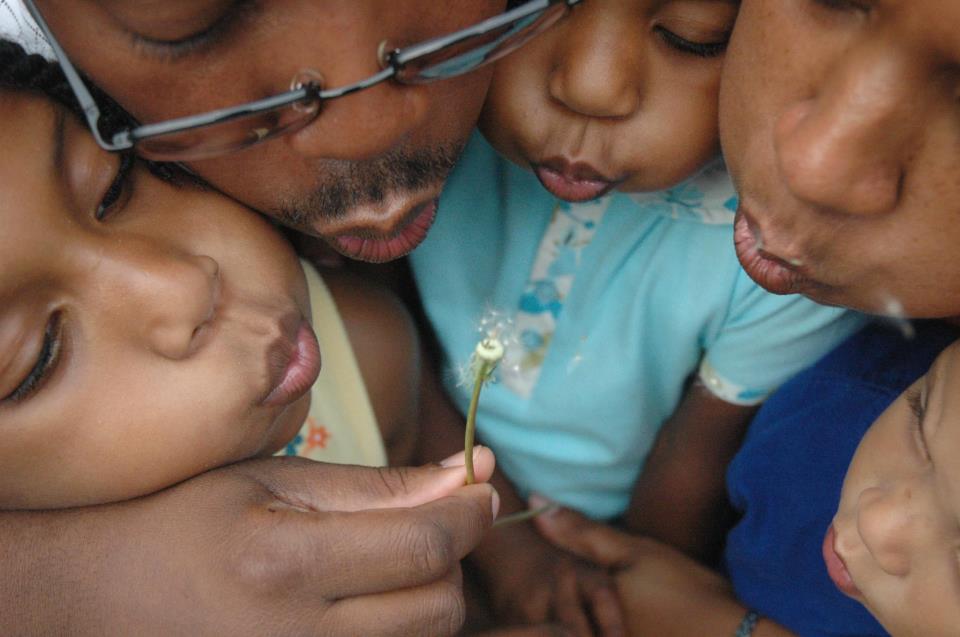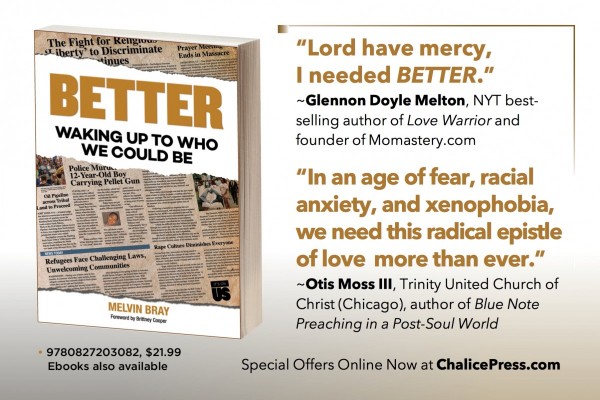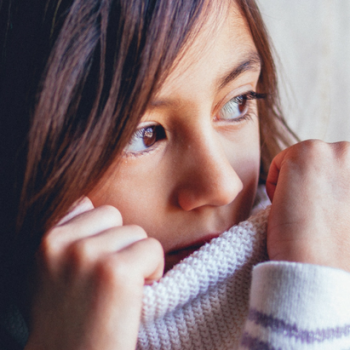
Image provided by Melvin Bray
Hi Melvin, welcome to Unfundamentalist Parenting. We are excited to talk to you about your new book BETTER: Waking Up to Who We Could Be! There were so many things I loved about your book, especially the way it relates to the work I do here on Unfundamentalist Parenting. Let’s get right to it:
You call yourself a recovering fundamentalist. So am I! Tell us a little bit about your faith trajectory, and how you think that affects your parenting.
Let me start first with my fundamentalist bona fides. I was raised in The Seventh-Day Adventist Church, where I attended Sabbath School and worship and prayer meeting and bible study and Pathfinders (our co-ed version of scouts) and other youth oriented stuff weekly, faithfully. I went to Seventh-day Adventist schools from first grade through college. And I loved the bible stories my mom would read me almost every night until junior high. As I am apt to say on occasion, it was the Jesus story that radicalized me.
This is what I understood parenting to be. So when I had my own kids, that’s what I started doing for them, reading to them about Jesus and the other Bible heroes as often as I could. I even tried to use some of the same Bible stories series I’ve been raised on. But the more I read the stranger those very familiar words started to feel in my mouth. I couldn’t wrap my brain around the inane triumphalism, patriarchy, pro-us-and-our-way-of-life that infested each page. And then the images were so Anglo and culturally Western, when the stories themselves came from the Middle East region, which is in North Africa. As an adult with a knowledge of history and critical analysis, this was disturbing because I understand what it was meant to cultivate in the minds of those who encountered it.
As I talk about in the book, I found myself in the awkward position of trying to rewrite the stories on the fly. When my kids would ask whether David or Esther, Mary or Jesus actually looked the way they were depicted, I knew there were only so many times, “That is just one person’s imagination of how it might have been,” would cover the multitude of sins to which I was exposing them. My only recourse was to begin to re-tell the bible stories from scratch, which is not altogether unpleasant for one like myself, but my heart goes out to those parents less disposed to such flights of fancy. I launched a story project called The Stories in which We Find Ourselves. With it, I continue to collect and create what I hope are better tellings of our faith stories rooted in the ethic of beloved community.
You frame your book, BETTER on the idea of COMPOSTing stories, faith stories that lead to more just and virtuous living in community. Can you relate this to parenting and raising children; why do you believe this is important for parents of faith to do this with our kids?
It may be important to note that by story I mean both narrative and ritual, which mythologist Joseph Campbell spoke of as “story embodied”. Primarily, I am talking about those particular stories that literature teachers refer to as “myth” (which doesn’t mean lie or legend, as most people use it). Myth means the stories around which we organize our lives. So I’m talking about those personal, communal, and national stories we tell ourselves to make sense of the world and articulate our aspirations in it. But, quite often, I’m also talking about those narratives, rituals, songs, images—art, in general—by which we rehearse our myths in part or in whole.
The reason story is so important in parenting is because it shapes early on our children’s intuitions of what is faithful, what is noble and what is possible. In this historic moment, when so much selfishness and bigotry is being re-enshrined into law, it is a relatively simple matter to trace rising homophobic sentiment among a vocal minority back to popular tellings of the myth of Adam and Eve and a taking of the written record of certain cultural norms to be the same as divine rules given to us by God regarding human romantic relations. Current anti-Muslim sentiment mirror common tellings of sagas like Cain and Able or Jacob and Esau and our tendency to want to side with those who were telling the story and got to cast themselves as being in the right. And anti-indigenous sovereignty and anti-immigrant isolationism reflect particular tellings of stories like Israel’s conquest of Canaan or return from exile, which after the time of Abraham, Isaac, and Jacob seemed to always involve antagonism toward those around them. Such hostilities are often embraced as if inevitable or the natural order of things, even God ordained. But what many miss is that such hostility is consistently critiqued in the faith stories handed down to us, often in the very stories from which we try to derive justification for our antagonistic ways of being in the world. The problem for those of us who grew up in fundamentalists traditions is that we were told either explicitly or implicitly that the hostile tellings were the only true tellings of the stories.
In order to help parents grasp the need for something better and begin to reshape their storytelling so that it promotes more beautiful, more just, more virtue-filled ways of being in the world, I use the metaphor of composting to describe the way our faith stories should nourish each new generation. Particular tellings of the stories shouldn’t sit inside our imaginations like immovable boulders—what Campbell calls “petrifacts”. They should be told in ways that can ‘psycho-degrade,’ as it were, and be reconstituted into something better (truer), when particular ways of telling the stories no longer faithfully reflect the virtues they are meant to promote. I then use COMPOST as an acronym to put forth a methodology for telling stories that function this way in kids moral imaginations. Parents seem to find our Stories that Compost workshops quite encouraging.
You do a fantastic job of speaking critically into power, privilege, and the intersectional oppressions of sexual, racial, and gender identity. You talk about sharing power and not robbing others of their agency. I think this is important to the parenting conversation in two ways: first, how can we ensure as parents we are sharing our power as adults with our children, and second, how can we help our children grow into the awareness of their own privilege and to give it away?
Thanks for that affirmation, Cindy. It is not the easiest thing to interrogate one’s own privilege; I rely on others to help me understand how I am doing.
You know, it seems like we live in a time where someone is always offering ‘5 steps to this‘ and ‘7 ways to that‘ advice about everything. In some ways, even BETTER is a giant how-to guide for telling better stories and creating a better world. However, some things you just have to do. There are no incremental moves leading up to it. Sharing power is one of those things. If you are making all the decisions, you are not sharing power. If you don’t begin, first, with your partner and/or the other adults in your child’s life to demonstrate how one regularly talks through decisions, your child never has an opportunity to witness the value and art of collaborative decision-making, problem-solving and discovery. And then, secondly, as your child grows, you have to invite her/him into the decision-making process in age-appropriate ways—initially decisions about themselves and then about things that impact the family—and allow them to experience the consequences of both good and bad choices.
It’s the same thing with privilege, you have to interrogate it in age-appropriate ways at every stage. You use the stuff of their life to talk about it. You correct the misuses of privilege for your kids even when it’s just something they are seeing on TV or hearing on the radio, but especially when it is happening in real life. You let them bear witness to you naming and interrogating your own privilege. And, most importantly, you let them see you dismantle the inequities you identify through both big and small actions.
In both instances, there’s “nothing to it, but to do it,” as we used to say.
You and your wife have made a conscious decision to not raise your children in religion. Why is that and how do you cultivate your children’s spirituality outside of religion?
I talk about this at length in the last chapter of the book, and in some previous writing here on Patheos. Suffice it to say, it is in part circumstance and in part experiment. At some point in life, Leslie and my dreams for ourselves and our family shifted. Our goal is to be (and to raise) adults of deep faith and moral courage, not particularly adults of religious commitment. And when we began to ask what was essential to that outcome, church wasn’t near the top of that list. That doesn’t mean we are against church or don’t ever go. It’s just not a part of our current rhythm. Routinely, we reevaluate this and other parenting decisions; at some point, we may decide to make a change.
We do, however, have a faith community, a ‘soul trust,’ as it were, to which we hold ourselves accountable and with which we build. We involve our children in activities from gardening to the arts to community service that make their hearts receptive to the call for an equitable world. As they get older, we will involve them in more and more of the explicit justice and solidarity work we also support and engage in.
Perhaps more than anything, we tell our children a lot of stories. Story is probably our most explicit faith cultivation tool. Some of our story ritual is annual. The 7 days before Christmas each year we tell a story each night in celebration of Advent. We do the same to celebrate Holy Week leading up to Easter. Some of it is weekly (at least intermittently so) in the keeping of Sabbath. But most of it is opportunistic. The point has been to look for those opportunities to share the stories of faith and possibility I hope will ground and shape the contours of my children’s lives and take advantage of them as teachable moments. So far, indications are that it is working.













